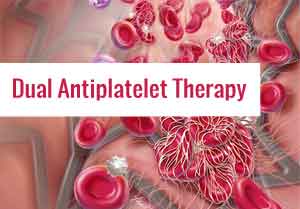- Home
- Editorial
- News
- Practice Guidelines
- Anesthesiology Guidelines
- Cancer Guidelines
- Cardiac Sciences Guidelines
- Critical Care Guidelines
- Dentistry Guidelines
- Dermatology Guidelines
- Diabetes and Endo Guidelines
- Diagnostics Guidelines
- ENT Guidelines
- Featured Practice Guidelines
- Gastroenterology Guidelines
- Geriatrics Guidelines
- Medicine Guidelines
- Nephrology Guidelines
- Neurosciences Guidelines
- Obs and Gynae Guidelines
- Ophthalmology Guidelines
- Orthopaedics Guidelines
- Paediatrics Guidelines
- Psychiatry Guidelines
- Pulmonology Guidelines
- Radiology Guidelines
- Surgery Guidelines
- Urology Guidelines
Everolimus-eluting Stent with 4 months DAPT effective and safe after PCI in uLMCA: IDEAL-LM trial

Everolimus-eluting Stent with Shortened DAPT is Safe and Effective for PCI in Patients with Unprotected Left Main Coronary Artery Disease finds IDEAL-LM trial.
In patients undergoing PCI for unprotected left main coronary artery (uLMCA) disease, the use of biodegradable polymer everolimus-eluting stent (BP-EES) followed by four months of dual antiplatelet therapy (DAPT) is safe and effective compared to conventional durable polymer everolimus-eluting stent (DP-EES) followed by 12 months of DAPT, reveals data from IDEAL-LM trial.
Findings of the study were presented at the 31st annual Transcatheter Cardiovascular Therapeutics (TCT) scientific symposium.
The optimal duration of DAPT in patients with uLMCA disease undergoing percutaneous coronary intervention (PCI) remains undetermined. New stent designs using a bioabsorbable polymer may allow a shorter DAPT duration.
The trial included 818 patients from 29 sites across five countries. They were randomized between December 2014 and September 2016 in the ratio 1:1 to receive BP-EES or DP-EES. Procedural success was 99.9%, predominantly using single stent techniques (79.6%). DAPT was continued for four months in the BP-EES arm, and for 12 months in DP-EES arm after, PCI.
The primary endpoint assessment was a non-inferiority comparison of major adverse cardiovascular events (MACE) rate, including death from any cause, myocardial infarction, or ischemia-driven target vessel revascularization (TVR) at two years after the procedure. Key secondary endpoints included ischemic and bleeding events.
Also Read: Initiate DAPT within 24 hours of minor stroke or TIA For maximum benefit: JAMA Study
Key findings include:
- The primary endpoint of non-inferiority for MACE at 24 months was met with 14.6% in the BP-EES group (n=403) compared to 11.4% in the DP-EES (n=396) group.
- There were no differences in ischemic events, including no difference in stent thrombosis, between four and 12 months when the antiplatelet therapy was reduced in the BP-EES arm.
- This strategy did not result in a reduction of BARC 3 or 5 bleeding in the short DAPT group, with low-bleeding occurring in both study arms (2.7% for BP-EES versus 0.5% for DP-EES).
Also Read: Study supports short term DAPT after PCI in patients with Drug-eluting stent
“IDEAL-LM confirms the excellent outcomes of current angioplasty techniques in patients with left main coronary artery disease,” said Prof. Robert-Jan Van Geuns, an interventional cardiologist at Radboud UMC, Nijmegen.
“In addition, short DAPT is an option after angioplasty for left main disease with the latest DES design.” Prof. Keith G. Oldroyd of the Golden Jubilee National Hospital, the other co-principal investigator, commented that the somewhat surprising data on bleeding was likely due to the use of oral anticoagulation in some of the patients who bled and pointed out that the trial was not powered for bleeding events.
Dr Prem Aggarwal, (MD, DNB Medicine, DNB Cardiology) is a Cardiologist by profession and also the Co-founder of Medical Dialogues. He is the Chairman of Sanjeevan Hospital in Central Delhi and also serving as the member of Delhi Medical Council

Disclaimer: This site is primarily intended for healthcare professionals. Any content/information on this website does not replace the advice of medical and/or health professionals and should not be construed as medical/diagnostic advice/endorsement or prescription. Use of this site is subject to our terms of use, privacy policy, advertisement policy. © 2020 Minerva Medical Treatment Pvt Ltd